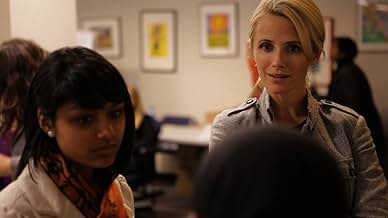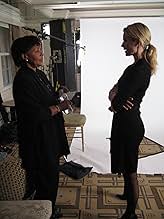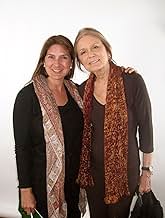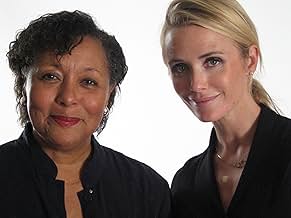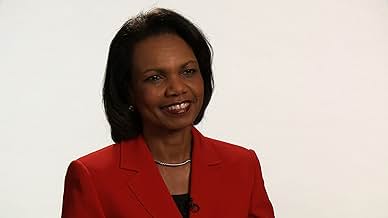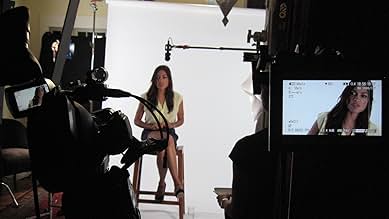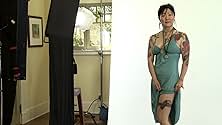Explores the under-representation of women in positions of power and influence in America, and challenges the media's limited portrayal of what it means to be a powerful woman.Explores the under-representation of women in positions of power and influence in America, and challenges the media's limited portrayal of what it means to be a powerful woman.Explores the under-representation of women in positions of power and influence in America, and challenges the media's limited portrayal of what it means to be a powerful woman.
- Awards
- 1 win & 1 nomination total
- Self - Associate Professor of Political Science, Occidental College
- (as Caroline Heldman Ph.D.)
Featured reviews
From an educational perspective, it is important for young women aged 12+ to watch this film and understand that they have the power to change the portrayal of their gender in the media from "Politician Barbie" to politician by challenging criticism and taking it in stride. I am hoping to see a second part to this documentary in the coming years, perhaps with more testimonials from young women and media figures.
However, there are also serious flaws, some of argument, some of execution.
While I myself fully support gender equality, and otherwise agree with the problem of glass ceilings and reduction of professional women to their sexualized attributes, I think it is very, very worrying the suggestion for some level of censorship and regulation of media content, especially the implication that some government agency should step in to enforce "family standards" in online content production and broadcasting. As a viewer, I was left with the impression the producers really didn't have a clue about issues concerning freedom of speech and were incredibly naive on their pro-censorship stance (since it doesn't resonate with the rest of the documentary).
Editing also could have been better. Some of the short testimonials could have been consolidated in longer shots focusing just one subject, instead of having too many parallel interviews clumsy moving forward on little bits that often got lost.
Finally, I think they could have better explored the hook on how sexist attitudes are bad not only for girls and women, but also for men. That would make the documentary even more interesting, although it already lacks, fortunately, a us vs. them tone.
But if we philosophically talk about this film and its contents, it's OK, it talks about real and horrible problem of teenage depression, diet obsession and disorders and many other maladies caused by living in a bubble created by media. People of both genders have this disorder and have obsessions with their bodies and look. It's planetary. Maybe even anthropological question since since ever people maimed their bodies to look 'great', from European corsets in the mid-XX century, Chinese wooden shoes, collars that extend necks of African tribal women, to contemporary plastic surgery.
I think that problem lies in fashion in general, in human obsession with fashion. In human need to be accepted. Actually the problem is very deep. Focusing on solely media is only a tip of the iceberg.
Basically this documentary tries to build the case that media is an insidious influence, whenever it is convenient to their case, but ignores any evidence that doesn't fit their theory. For instance if media were so influential, Americans would be thin and fit, but we all know that isn't true. But more to the point the issue with this documentary is that it is not concerned with looking at its arguments in any depth, instead a cheap slogan type of declaration or testimony is put out by some talking head and in a few minutes of selective media clips they try to cover the lack of depth by jumping from topic to topic flooding you with a barrage of clips and speakers. It reminds me more of a political campaign advertisement than a serious documentary really interested in honest examination of an issue.
They make points claiming that other countries have had women leaders before us because we don't depict them in the media, but does that even pass quick inspection? Benazir Bhuto who was a female prime minister of Pakistan lead arguably one of the most sexist countries on earth. So how does that argument even pass muster before they put it in the documentary? It epitomizes the level of thinking in this film.
Margaret Cho for example claims that sexism was the reason her sitcom failed, but is that really true? Maybe she just isn't funny. It doesn't matter to this film because all they do is throw these statements out there one after another. Statements claiming that shows like jersey shore are sexist because they show women in a bad light are made entirely ignoring the fact that the male cast in those shows are hardly considered respectable either. This type of poorly thought out argument is the basis for the entire film sadly, and because it is so paper thin, they cut from topic to topic in a hyperactive manner.
TV networks like FX have even been known to do things like pass on hit shows like Breaking Bad because they rejected the show based on their quest to break into the lucrative female demographic. Apparently the middle aged white lead was enough for them to pass on the show. But such facts do not matter to this film, which assumes sexism is always the answer to every question in the most simplistic way.
My problem with films like these is that they are more about employing techniques of propaganda with selective evidence and shallow one sided argument rather than encouraging critical thought about a subject. To promote this as a feminist film is really to give women no credit at all.
If one is going to claim that media does women a disservice, I would suggest this film is the most harmful of all. To use the words of Erika Falk PhD from the documentary against herself and the film itself, women like her and this film paint themselves as "more fragile, emotional, and more gullible than men, therefore they are irrational and cannot be trusted in positions of power".
Did you know
- Quotes
Herself - Associate Professor of Political Science, Occidental College: Women who are high self-objectifiers have lower political efficacy. Political efficacy is the idea that your voice matters in politics and that you can bring about change in politics. So if we have a whole generation of young people being raised where women's objectification is just par for the course, it's normal, it's okay, we have a whole generation of women who are less likely to run for office and less likely to vote.
- ConnectionsFeatures Liliane (1933)
- SoundtracksHelp, I'm Alive
Written by Emily Haines and James Shaw
Performed by Metric
Courtesy of Metric Music International
- How long is Miss Representation?Powered by Alexa
Details
- Release date
- Country of origin
- Official site
- Language
- Also known as
- Miss Escaparate
- Filming locations
- Production companies
- See more company credits at IMDbPro
Box office
- Budget
- $750,000 (estimated)
- Runtime
- 1h 25m(85 min)
- Color


